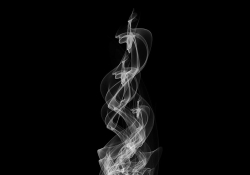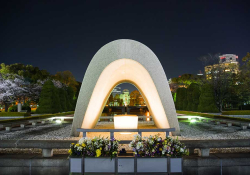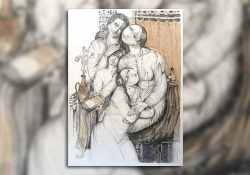No Formal Space for Intimacy (excerpts)

Author’s note: Five years ago Chile was commemorating the fortieth anniversary of its own 9/11. I was living in the States by then, and as a writer I was seriously considering what had been my contribution to the remembrance of the tragic and bloody events that took place in my country from September 11, 1973 on. I could see how the Chilean media had been over flooded with documentaries, special programs about the coup and the years of the dictatorship, and also witness how images we thought were lost, surfaced with a part of history that had been resistant to oblivion.
I told my friend and peer, the poet Frank Sherlock, about this, and during a trip to Washington, talking with the cab driver about the assassination of Orlando Letelier in 1976, we agreed we should write something about it, but something from within. We became obsessed with the figure of Michael Townley, an American citizen member of the Chilean secret police who, after being in the US federal witness protection program, was now free and living as a prominent businessman somewhere in Florida. We thought of calling every single Michael Townley in the directory. Then we became obsessed with the figure of his wife, Mariana Callejas, an agent too and a writer, who organized literary salons in the very same house where people were tortured. Then we were drawn to the house and its accounts, because as Frank once wrote, as artists creating in the United States, we are in the house.
As a consequence of this process, we wrote this piece aiming to question what it means to write and share our work in the American salon while colleagues and comrades suffer in basements around the world. What is our level of complicity then? – Carlos Soto-Román
September 21, 1976 – The White House
A house without a face is a map
A house without a body is merely a puzzle
The rooms may look like small pieces
shaped by the absence of residents
molded by the accidental transit
of unfortunate passengers
Our house for instance is a cradle
Our house is a nest
In our children’s imagination
we often cut this house in two
From ground floor to the attic
from port to starboard
So all the space can be simultaneously visible
And all the rooms circumstantially tangible
Mother reads Borges in the living room
Father works like a watchmaker
assembling explosive devices…
Mr. President . . .
we might have a little problem Mr. President Yes a bomb has exploded Yes it was here in Washington Yes, Mr. President Sheridan Circle Yes on Embassy row Don’t worry Yes, Mr. President two dead one wounded Yes two Americans citizens involved One was a casualty Copy that The other was a Chilean leftist former diplomat I understand Mr. President Yes, I understand but let me tell you everything is under control Mr. President Yes I know it was close to the White House Mr. President But I repeat Don’t worry We are working on it Yes we are already on it I know, I know Mr. President I’m aware of that and I want you to know I do realize the severity of the problem Copy that I agree, Mr. President it’s a complicated issue but again I’ll personally take care of it A full report is coming Mr. President You’ll have all the details Please go back to your meeting Mr. President A full report is coming Mr. President I’ll certainly keep you informed Sir
He Is Dead Is Exhumed Is Alive
“The true revolutionary is guided by great feelings of love.” – Che Guevara
To murder a poet
is a market correction
Killer cancer Capital C capital
Never around
to bury the dead
gone soon after
metastasis
The blood of campesinos has not dried
it does not dry, over time
A world that has
lived like six thousand years
has only hopes for tomorrow
I love you just so I can begin to love you,
to begin anew at the infinite
The simple instruments of joy
for a death minister can be
found beneath the front seat
the timepiece the tape the syringe
A language w/ brutal inflection
diseases the cards in the rolodex
infects the desk stuffed w/
sketches of land art as launch pads
In this story, only I die today,
and I will die of love because I love you
Dr. Price appears to be
a magician anyone can
kill it takes an expert to
disappear & kill & disappear
Absence is such a transparent house
that without my own life, I will watch you live
and if I see you suffer, my love, I will die again
The world has lived
like six thousand years
has birthed resistant bodies
to be fragged & scattered as a mirror
of what was displayed as totem in
the museum of humankind to multiply
to be more resistant & of course to sing
On my violin that sings out of tune / my violin declares / I love you, I love my double bass / my heart, my teeth, / my light and my spoon, / my salt of the dim week, / my clear windowpane moon.
There are two sounds you should know of
the sound itself and the lack of it
Just a simple matter of form and content
The scream and the silence
that comes right after it,
and
The silence and the scream
that precedes it
Is the scream shaped by the silence
that surrounds it?
or
Is the silence emphasized
by the scream that occurs between the silence?
There’s a blindfolded man in the garage
beaten to the point of exhaustion
It seems likely he’s not going to make it
We read a house
We read a room
In our perfect understanding
that this space builds to a map
that’ll help us to comprehend intimacy
So together we dwell in the hiding place:
these dead zones of morality
Although in this fortress
there is no formal space for intimacy
Just dead rats and rabbits overflowing the basement
Just sulfur & cyanide particles in gusts of wind
My bones, my heart, my blood
mil astillas, mil pedazos, mil gotas
scattered, spread, spilled
por el cielo, por el suelo, por el aire
Dry, stiff and popeyed bodies on the grass
smelling like rotten eggs and almonds
The gardener patiently removes the corpses, day after day
none of them has a single scratch or a wound though
Death is such a riddle
Death is such a joke
This is how a whiff of inhumanity should be
This is how time is compressed
The being and the well-being
dissociated, dismantled by force
in order to follow a certain order
in order to elaborate a partial truth
This is what space is for
A weak alibi so all misrepresentations
of the ethic & the aesthetic of the so-called
reconstruction, can take place
An anechoic chamber full of ghosts
A place where only grief & silence exist
September 21, 1976
Washington DC – Embassy Row
On September 21, Orlando Letelier del Solar (economist, socialist politician, diplomat and leader of the Chilean opposition), his assistant Ronni Moffitt, and her husband Michael were in a car on their way to work. Letelier was driving the vehicle, Ronni was in the front passenger seat and Michael was in the back seat. As they rounded Sheridan Circle on Embassy Row at 9:35 a.m., a bomb exploded underneath the car, lifting it off the ground. Letelier was immediately killed and Ronni Moffitt died shortly thereafter at a nearby hospital. Investigators determined that the blast was caused by plastic explosives, molded to concentrate the force of its impact into the driver seat. The bomb was attached by wires or magnets to the car’s underside and blew a circular hole, 2 to 2½ feet in diameter in the driver’s seat. A memorial to them sits across from Sheridan Circle.
The words
JUSTICE – PEACE – DIGNITY
are inscribed.










